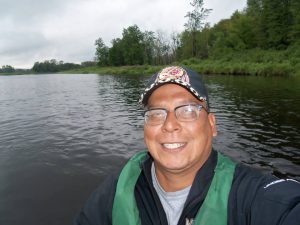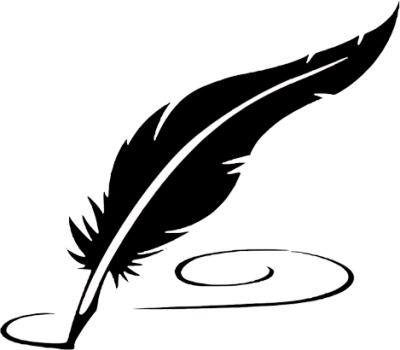Wen net ni’n
Wen net ni’n wjit ki’l
Ta’n sa’q weskowa’si tett
Wen net ni’n wjit ki’l
Ta’n tujiw maja’si’t~p
Wen net ni’n wjit ki’l
Naqali’t~p aq je me’ eymap
Wen net ki’l wjit ki’l
Ta’n telimi’t~p maja’si aq me’ ni’n eymap nkamulamunk
Wen net ni’n wjit ki’l.
My Child
When you were born, I held you in those warm blankets to cover up your new body.
When you came home, I bathed, cared for and was in awe of your miraculous beauty.
When you could walk, I watched you very closely, with tears in my eyes as you took your first step to freedom.
When I seen you climb aboard the bus for the first time, I held back the tears of joy as you left the house of love for your first taste of freedom.
Now, you are getting older, I have to remind myself of those beautiful days of when you were in my arms in that warm blanket.
And that you still are and always were in that warm blanket. My love for you was and always will be that warm blanket.
RECONCILIATION
I am writing this in the hopes of moving forward with my life, to find solace. As far as I can look back, I have always loved my mother, but since my birth, there has been nothing but turmoil in my life. My earliest memories were of lying in the arms of women that I did not know or of crawling around the floors of places that I cannot remember. I remember my mother’s face once as I was crawling on a plywood floor with ripped linoleum; I stopped to glance at a particle-board table with markings under it and heard my name called by a dark haired lady. I can always remember my mother with short hair and have never seen her with any hairstyle other than that.. I have always lived with relatives or friends of my mother, never knowing when she would turn up, but when she did, I would cling to her. I hoped that in clinging to her, that she would not leave me again; alas, I was mistaken. I remember the last time that she left me with my godparents, I begged her to stay, but she said goodbye. As she was leaving, my godmother told her, “If you leave, he is mine, you can’t keep doing this to him,” in the Mi’kmaq language. My mom looked at me, hugged me and left in the old Ford Pinto where she threw her luggage and a garbage bag full of her clothes. I cried for weeks, not knowing when she would return. I waited every season, every birthday and prayed to Santa to bring my mom to me on Christmas, but nothing. I grew up with my siblings, with endless fights, laughter and memories that are everlasting to this day. I grew up, passed every grade that I could and still no word from my mother.
As I was entering into my teens, I went to Maine to rake blueberries with my family, which is a Mi’kmaq cultural tradition. I was raking to raise money for myself and some school clothes, which was back breaking work. Upon arrival at the camp area, I noticed a hairstyle that I knew from my heart: it was my mom. My heart raced as I ran over to hug her and as she turned around I noticed she was drunk, again. I left in disgust as she tried to hug me back and explain herself. She came by our camp at the middle of the night, pleading to my godmother to see me before she passed out on the front steps of our camp. Upon awakening, she drank some tea with us as she explained her adventure in Maine. She left our reservation, Eskasoni in Cape Breton, for another reserve in New Brunswick, where she met a Mainer. The next day I met him, a short, stubby white guy who had a receding hairline. As I hugged my brown-skinned mom goodbye, she whispered in my ears to ask my godmother if she could stay with her for the summer. My heart raced as I hurried along to ask her, getting a quick reply of “no,” but I still pleaded, even having my siblings beg along with me. She finally agreed, as long as it was just for the summer. I spent the next few years with my mother after that. I always babysat my younger brother and sister, when she was too drunk or high to even take care of them. I would get tired of the endless fights that went on through the morning and to wake up to a few hours sleep as I boarded the school bus. I went through this ordeal for a few years and when I got the chance, I left her to go back home to Eskasoni. She cried as I defiantly held my ground and left with my garbage bag of luggage on the back of the Ford truck. As I rode on the back of the pickup truck, with nothing but the howling wind to keep me company for the next eight hours, I wondered: Will she be okay without me? Will I go back to her? Will this be the last time that I would see her?
Years went by and I grew up, had a child and followed in my mother’s footsteps as I moved from house to house. I, too left my son behind as I was thrown out of the house which I called love. Again, my son’s mother found love in the arms of another man and was expecting. I was furious, but I kept my distance. My mother would arrive back on the reserve again; this time I would ask her the one question she avoided answering: “who was my dad?” As I sat across from her in a blackout, with flicker of the candle between us, my heart raced as I asked her this question. The whole room became quiet, she answered my question “Gordon,” and more questions came to me as fast I could get them out of my mouth. When I received my biweekly welfare check, I left to see my father. I started hitchhiking with my first cousin on a journey that would take us two days to Shubenecadie, another reservation in the mainland of Nova Scotia. When we arrived at Halifax, a city close to the reservation, I left the next day to look for my family. I found my grandmother first, Nancy, after that the whole family came to see Gordon’s son. I hopped on the truck with my new uncle to visit my father’s grave, a small stone that had his name engraved in it, no date or anything. My uncle explained to me that after he got out of prison, he wanted to see his son, but was run over by a car.
Of all the heartache that I endured through my life, I never considered reconciliation until a new group of women in Maine would introduce this concept to me. They were a part of the Wabanaki Truth and Reconciliation, which is a vital piece in the child welfare system to assist in the healing process. I would later find myself at a ceremony in the Gaspe region of Quebec, another reservation called Gesgapegiag, where an elder spoke to me of healing from within, to forgive all those that hurt me, and to ask forgiveness from all those that I hurt as well. As I stood there in the rain, I looked down at the piercings in my chest, attached to a rope that was tied to a tree; I thought to myself, I can’t run away from this. As the water dripped down my face, I asked for forgiveness to all that I hurt and that hurt me. As I was crying, my mom’s face came into my memory and a flood of tears came as I forgave her for leaving me so many times. My face made that ugliness, as I cried real tears and they streamed down my face, masked by the thunderstorm. I danced, my back pain disappeared and my hip pain was dissipated by this sudden pain in my heart of feeling that everything will be alright. I awoke to a ray of sunshine, as I opened my eyes to an elder that asked if I was alright. I nodded my head, he then said, “that was good healing and you needed that to move forward in your life.” I could not agree more as I felt happier in my life than ever before. When I returned back home to Presque Isle, and I gave my mom that big hug that stemmed back from my childhood, she looked at me and asked if I was alright. I said, I’m better now. She proceeded to ask how the ceremony was and I told that her that it was full of reconciliation. I later found out that my mom had been suffering from schizophrenia, probably since she had me and that I was better off living with others that would take care of me than her, but my love for her still lives on, based on my reconciliation.
 John Dennis (Mi’kmaq) was born in Eskasoni, Cape Breton, and is a member of the Aroostook Band of Micmacs in Presque Isle. He is studying for his degree in Elementary Education at the University of Maine-Orono. Dennis is a father, with one son, and an active community member who enjoys learning about his culture, history and language.
John Dennis (Mi’kmaq) was born in Eskasoni, Cape Breton, and is a member of the Aroostook Band of Micmacs in Presque Isle. He is studying for his degree in Elementary Education at the University of Maine-Orono. Dennis is a father, with one son, and an active community member who enjoys learning about his culture, history and language.
